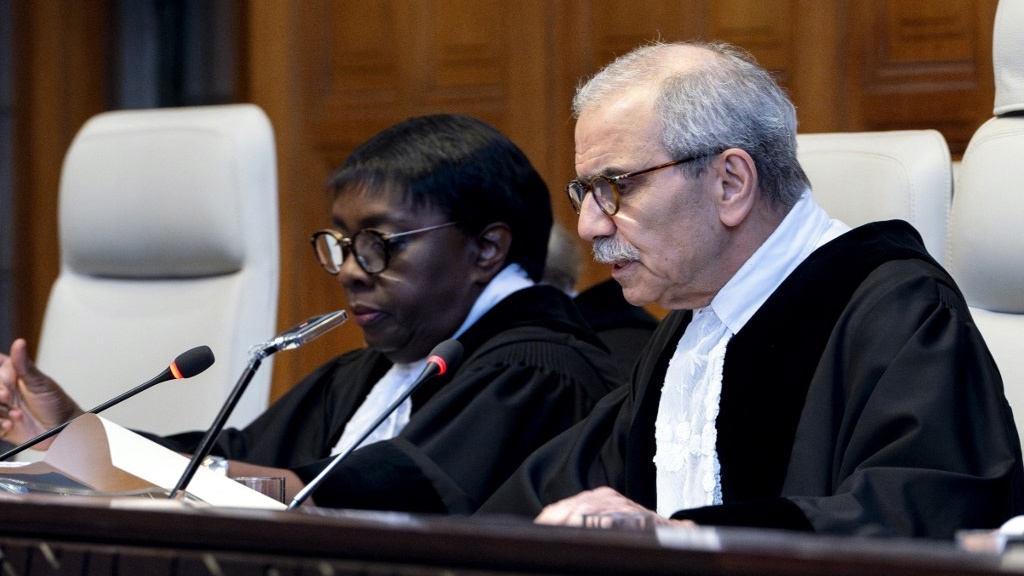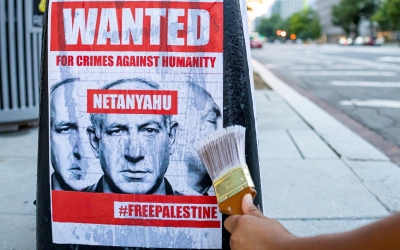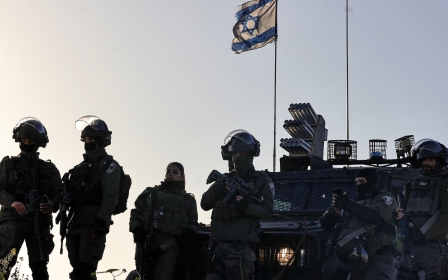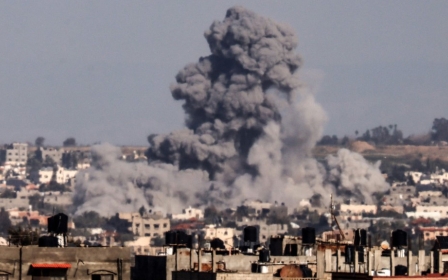Why the world must stand behind ICJ decision on Israeli occupation

The International Court of Justice (ICJ) overwhelmingly decided last week that Israel is no longer legally entitled to act as the occupying power in Gaza, the West Bank and East Jerusalem, noting that its further presence in these territories is unlawful.
The decision took the form of an “advisory opinion” in response to two “legal questions” put to the ICJ by the United Nations General Assembly in 2022.
Israel declined to take part in the court proceedings except by way of a written statement objecting to the whole process as improper, arguing that Israel’s consent was needed before its governmental conduct could be legally evaluated by the ICJ, even in a process labelled as “advisory”.
Does being an “advisory opinion” rather than a formal judgment in a “contentious” case make a decisive difference in the political weight or legal authoritativeness of the outcome in this comprehensive legal scrutiny of Israel’s prolonged occupation of the Palestinian territories?
An important question is raised by the formal, obligatory format of the ongoing South African ICJ case alleging Israel is committing genocide in Gaza.
New MEE newsletter: Jerusalem Dispatch
Sign up to get the latest insights and analysis on Israel-Palestine, alongside Turkey Unpacked and other MEE newsletters
From Israel’s point of view, these two cases are not very different, beyond the ICJ focusing on the alleged legal wrongdoing associated with 57 years of prolonged occupation in one instance, and in the other, South Africa seeking the court’s support to end the Gaza genocide that started last October.
In both instances, Israel has denounced the ICJ for reaching legal conclusions that it says compromise its security and right to defend itself. With such reasoning, Israel gives every sign of ignoring the ICJ as it works to “finish the job” in Gaza, while continuing the policies and practices associated with its approach to occupation since 1967.
'No one will stop us'
Israel’s language of rejection is clear, with the prime minister’s office noting in a statement: “Israel does not recognize the legitimacy of the discussion at the International Court of Justice in The Hague regarding the ‘legality of the occupation’ - a move designed to harm Israel’s right to defend itself against existential threats.” Or in Prime Minister Benjamin Netanyahu’s cruder language, “no one will stop us”.
On a superficial level, this near-convergence of outcomes seems to neglect the intended distinction between what is “advisory” (and hence non-binding) and what is “obligatory” and binding.
Follow Middle East Eye's live coverage of the Israel-Palestine war
Upon more reflective consideration, this convergence is far deeper, grounded more in the evolving jurisprudence of the ICJ than in Israel’s criticisms of the process and refusal to implement the rulings in either case.
In its lengthy landmark decision on the issue of the Israeli occupation, the ICJ reached nine conclusions, none of which were opposed by more than four of the 15 participating judges.
This advisory opinion lends important authoritative support to several central Palestinian grievances
This level of judicial consensus in such a politically polarised atmosphere lends support for viewing the court’s decision as authoritative when it comes to evaluating Israel’s behaviour as an occupying power in relation to international humanitarian law - especially the Fourth Geneva Convention governing belligerent occupation - and international human rights law, especially the treaty prohibiting racial discrimination.
Such a consensus is strengthened by additional comments from judges from Global South countries (including Somalia and Lebanon) that go further than the advisory opinion itself to explore the relevance of the colonial background that informs the occupation of Palestine.
Also noteworthy is the fact that the US and Australian judges cast their votes in line with the ICJ consensus, despite their governments being ardent supporters of Israel, with eyes closed to Israeli criminality in both the long occupation and the Gaza genocide.
Primacy of geopolitics
As with the South African case, the ICJ gained widespread approval for so clearly putting law ahead of national identity. This kind of prioritisation is missing from the political organs of the UN, especially the Security Council, where affiliated flags take unquestioned precedence - and to be sure that the primacy of geopolitics is sustained, the permanent members, P5, get a veto (prompting Turkish President Recep Tayyip Erdogan to object with the pithy words: “The world is greater than five.”)
The ICJ formulates the substance of its legal analysis in language that intends to be obligatory with respect to Israel. It directs all states and the UN itself to implement its rulings on matters of illegality and the consequences of Israeli unlawfulness. While the decision is labelled “advisory”, as required by the ICJ framework, its pronouncements on the law are stated as if authoritative, and they are supported by the overwhelming majority of judges.
The ICJ also appears to be claiming the authority to tell three categories of political actors - Israel, all states and the UN - what their obligations are with respect to its central finding that Israel’s prolonged presence is no longer legal and should be terminated as rapidly as possible.
In the process of reaching this weighty conclusion, the ICJ found that Israel was responsible for blocking the Palestinian right to self-determination, wrongfully annexing Palestinian territory by force, violating the Fourth Geneva Convention through its large-scale settlement project, and relying upon discriminatory policies and practices to administer the occupied territories.
The few judges who refused to go along with these findings argued that the ICJ proceedings took insufficient account of Israeli security concerns and counter-arguments.
Regardless, this advisory opinion lends important authoritative support to several central Palestinian grievances with respect to international humanitarian and human rights law, particularly concerning the lawfulness of controversial Israeli policies and practices in the occupied territories - and the legal duty of Israel, other states and the UN to follow this decision up with concrete action.
The views expressed in this article belong to the author and do not necessarily reflect the editorial policy of Middle East Eye.
Middle East Eye delivers independent and unrivalled coverage and analysis of the Middle East, North Africa and beyond. To learn more about republishing this content and the associated fees, please fill out this form. More about MEE can be found here.






